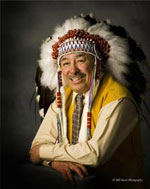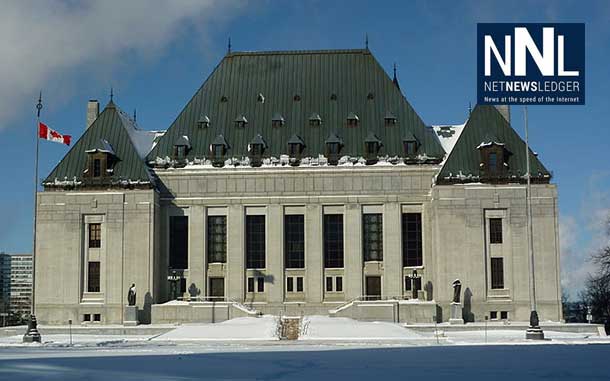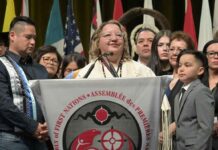
OTTAWA – Updated – “While today’s decision is very disappointing we want to commend Grassy Narrows First Nation for standing up for the rights in their Treaty and using all avenues to protect their rights and their traditional territories.” stated Ontario Regional Chief Stan Beardy. “While this decision did not achieve what the people of Grassy Narrows First Nations were seeking, it points to the need to ensure all governments work with First Nations to implement Treaty rights and obligations. I will be in touch with the leadership at Grassy Narrows First Nation and Treaty 3 immediately to discuss next steps with the province of Ontario and all levels of government to resolve the situation in a way that respects our rights, title and Treaties.”
“Despite the decision, First Nations will continue to challenge provincial actions that contravene their own laws and Assertions,” Ontario Regional Chief Beardy continued. “The question that is being missed today is how did Canada and Ontario come to say they have decision-making power over First Nations’ homelands in the first place? Please, let us not forget how the Treaties validated First Nations’ Nationhood prior to Canada becoming a country, and prior to having a Supreme Court.”
Compared to First Nations laws, Canada’s laws are relatively new.
“The Ojibways in Treaty 3 have been consistently clear that they will continue to enforce their Resource Law over any newer laws or court decisions as Sovereign peoples, so I am going with that,” added the Ontario Regional Chief.
“Respectful resource development requires collaborative decision making respectful of First Nations original title, laws and Assertions. This respect requires Ontario to exceed the duty to consult and accommodate referenced in the Supreme Court’s decision.”
The Assembly of First Nations (AFN) today commented on the Supreme Court of Canada’s decision in Andrew Keewatin Jr. et al. v. Minister of Natural Resources et al. (Ont.), a case dealing with Treaty No. 3 rights and the ability of the Province of Ontario to take up lands subject to the Ojibways’ right to hunt and fish in this territory. Treaty No. 3 covers areas of northwestern Ontario and parts of eastern Manitoba. The Supreme Court ruled that only Ontario has the power to take up lands under Treaty No. 3.
AFN Regional Chief for Saskatchewan Perry Bellegarde, who holds the Treaty portfolio for the AFN, stated, “I remain unconvinced that justice will be achieved through Canada’s domestic courts when it comes to the interpretation of our international Treaties. We are dismayed that the Supreme Court failed to recognize the First Nations’ understanding of Treaty 3 including First Nations’ jurisdiction over this territory. Today’s decision illustrates two important issues. First, it is essential that our Treaties, which are international in nature, be guided by international standards and mechanisms. Second, the ruling today reinforced the requirement of the Crown to consult and accommodate. Again, given the snail’s pace at which the provinces are moving on their duty to consult and accommodate, this also needs to be addressed according to international standards as affirmed in the United Nations Declaration on the Rights of Indigenous Peoples.”
The Keewatin case, as it is known, was brought forward by Andrew Keewatin Jr. of Grassy Narrows First Nation, a Treaty No. 3 First Nation in Ontario. At issue in the case was whether or not the Province of Ontario has the authority to unilaterally take up tracts of lands under Treaty No. 3 to carry out forestry operations, thereby limiting the exercise of First Nations Treaty rights within the territory. Treaties were signed between the Crown and First Nations and as such First Nations do not recognize provincial authority over their lands and territories. Today’s decision ruled that although Treaty 3 was negotiated by the federal government, it is an agreement between the Ojibway and the Crown and both levels of government are responsible for fulfilling the Treaty promises. The Court also stated that for land to be taken up under Treaty No. 3, the harvesting rights of the Ojibway over the land must be respected by Ontario.
Grassy Narrows First Nation launched the court case in 2005 after Ontario’s Minister of Natural Resources issued a forest license to Abitibi-Consolidated Inc. (now known as Resolute FP) to carry out clear-cut forestry operations on Keewatin lands within Treaty No.3 territory that was added to Ontario in 1912. Grassy Narrows First Nation maintains that Ontario violated the harvesting clause in Treaty No.3 by significantly interfering with their harvesting rights under the Treaty.
AFN served as an intervener in this case at the Supreme Court of Canada in support of Grassy Narrows First Nation and First Nations Treaty rights.











